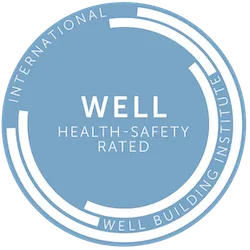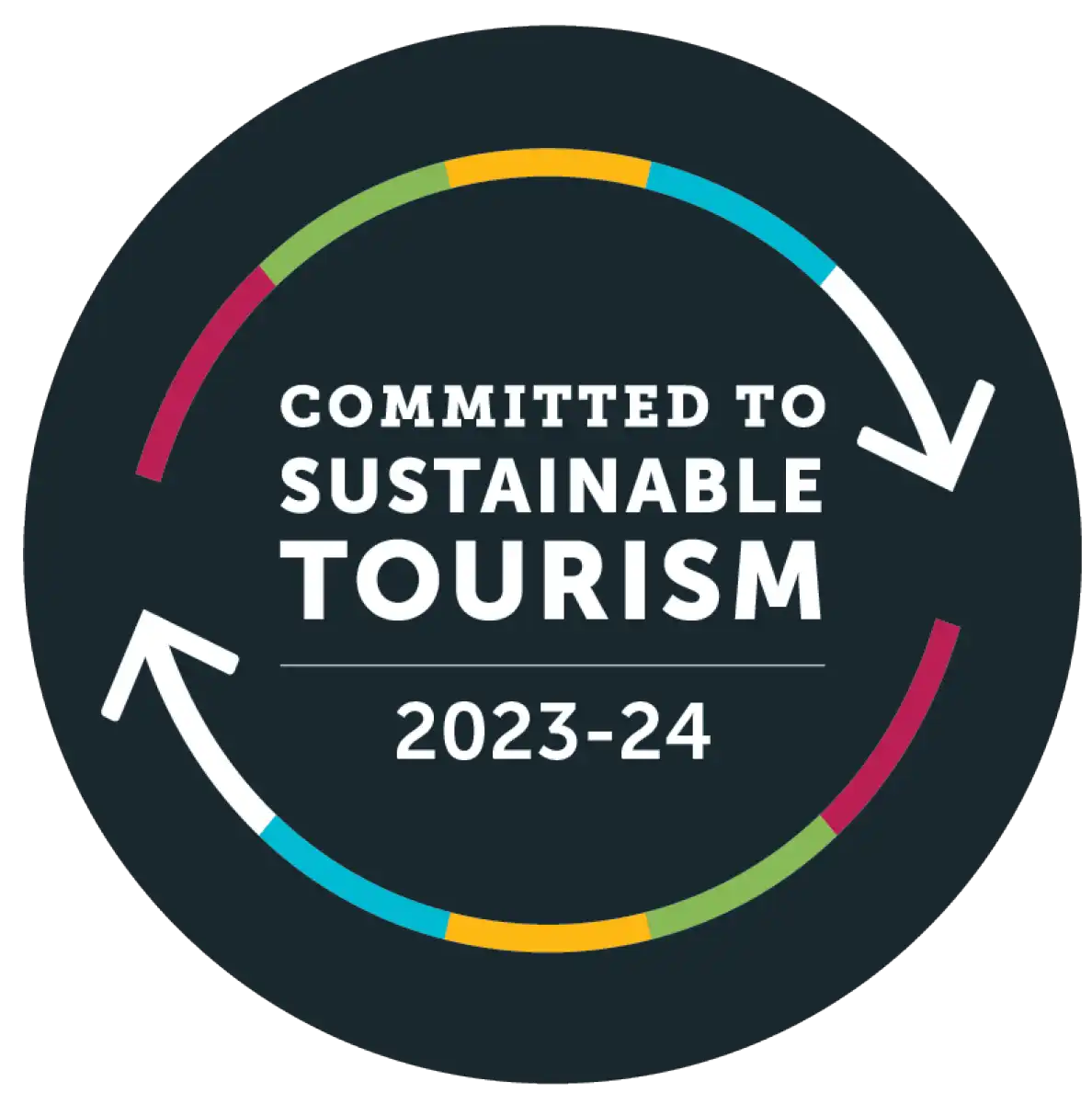Eden Park’s sustainability journey creating a buzz
Dec 16, 2021Auckland’s Eden Park stadium is a buzzing hive of activity, even when it’s not a game day.
More than 360,000 bees are busy working away at the park’s onsite beehives, providing more than 700 jars of honey. The park’s staff are also busy overseeing sustainability initiatives that they hope will cement Eden Park as a world leader in stadium sustainability.
Eden Park will host the women’s cricket, rugby and football World Cups in the next two years. Those events will be broadcast to billions of fans around the globe, giving the park a chance to show off how stadiums can help the environment, rather than negatively impact it.
For chief executive Nick Sautner there’s a simple reason why sustainability is important.
“To save the planet! After all, there is only one,” he says.
“In today’s evolving world, sustainability lies at the heart of our new future. We must ensure we meet the needs of current generations without compromising the planet for our future generations.
“It is a delicate balance between the environment, society and the economy.”
It began three years ago, with a commitment to mitigate the negative impacts on the environment the stadium was having.
Reducing waste going to landfill, composting, reducing the carbon footprint and bringing the community together are among the goals of the stadium’s “sustainable living journey”.
Every piece of rubbish discarded at the park goes into three areas – cans, compostable and landfill. All the cans, Sautner says, are taken off site and recycled, earning money for community groups . It’s a win-win for the park and the community.
The park’s on-site composting programme was first piloted in 2017, with a system designed to be consistently aerobic, reach high temperatures, and compost any food waste – from vegetables and meat, to bones and shellfish. It was enough for everyday food waste from staff and small functions, but the composting programme has been so successful that they are now working with offsite providers to ensure game-day food waste doesn’t go to waste.
“These issues affect everyone,” he says.
“From the plastic coke bottle you purchase and throw in the bin to the prevalence of floods and fire that have become part of the weather landscape recently. You cannot fail to be aware of the issues facing the planet.”
Plastic waste reduction has been a big thinking point for Sautner. Gone are non-recyclable or non-compostable packaging. All food made on site is now packaged in compostable products – even those hot chips slathered in tomato sauce. Even the cutlery. The park is also encouraging fans who pack their own food, to take their plastics and other waste with them. All of this works towards the aim of having zero landfill waste by the end of 2023.
“A reasonable number of our patrons bring their own food into the stadium, and often, this is wrapped in cling film or might be a commercial product with non-compostable packaging. We are considering trialling a ‘take your rubbish home with you’ promotion to encourage patrons to use reusable containers actively,” he says.
“Plastic waste discarded in the sea contaminates the fish and sea life, food waste in landfill, inappropriate packaging – plastic wrapping on cucumbers, PLU stickers – surely someone can tell the difference between a kūmara and a mango – and so the list goes on.
“We know that we play a leadership role in the Auckland community, so it’s important to us that we lead by example, showing others how to live a sustainable and environmentally friendly lifestyle.”
Then there’s the commitment to reduce water. It’s a tough ask when you’re taking care of some of the most hallowed turf in the country. The park staff have set up a water bore and their own treatment plant, which processes rainwater. The water is then used to hydrate the turf, and used for maintenance, landscaping and cleaning. This initiative saves up to 16 million litres of town water every year, he says.
Lights play a vital role at the stadium – you couldn’t have a day-nighter cricket match without them.
Eden Park has established a programme to replace all sport and emergency lighting with LED products.
“We estimate that we are 75 per cent of the way through this project and, apart from the obvious environmental benefits, a considerable amount of time was previously spent replacing light bulbs which equates to approximately 50 per cent productivity for one staff member,” Sautner says.
There’s an investment in up-skilling and educating staff at the ground – whether full time or casual – on sustainable practices, and there are the partnerships with organisations whose values align with the park’s, he says.
“The expenses associated with the above initiatives, whilst not overbearing, are more costly than doing nothing, or doing the wrong thing,” he says.
“This not only includes the tangibles – compost bins, sorting crews, packaging – but the level of supply agreements with large corporate organisations.
“Although things are beginning to change as pressure is placed on external companies, it is still cheaper to produce a bar of chocolate in a foil wrap rather than invest considerable amounts of money in research and development for an alternative packaging source.
“It is, however, pleasing to see new inventiveness such as ice block packaging, potato chip bags and, wherever possible, Eden Park is actively encouraging the supply of these products throughout the stadium.”
Speaking of food, out the back in a low-use area of the carpark is the Morningside Urban Market Garden, a collaboration between Eden Park and social enterprise Grow Space.
Grow Space’s Jason Dodunski says the organisation has an interest in developing neighbourhood scale food systems, teaching those in the community about sustainability practices, and giving refugee and migrant women a chance to develop their skills in the garden.
The garden uses not only compost from Eden Park, but also food waste from the surrounding neighbourhoods. It’s also established a residential collection scheme using e-bikes, to make it easier for the community to contribute to the composting initiative.
“Grow Space’s overarching vision is for a kind of holistic regime to food systems,” he says.
“If we look at the neighbourhoods and that holistic approach, backyards are just as important as the kind of enterprises that come out of what we’re doing.”
Dodunski says projects like this are popping up across the country, and he’s encouraging other communities to think smarter about their land use for sustainable practices.
“I would encourage other people to find plots in their neighbourhood and get involved,” he says.
“This is the… idea of the sharing economy. Food is a really easy way to integrate that into our every day.”
He’s pleased Grow Space is part of Eden Park’s journey towards sustainability.
“For us, it’s about utilising these spaces – whether they are public or private – that can have multiple uses. We just need to think a little bit more creatively about how we use [Eden Park] when it’s not being used for sport, because having these multi-use spaces within the community is really important,” he says.
“And for stadiums to be part of our neighbourhood. That’s what I’m most excited about with Eden Park is that they are genuinely part of the neighbourhood and do want to be good neighbours.”
Amongst the garden beds at Eden Park is Therese Uwiteguye. She travels from Henderson at least twice a week to tend the vegetables, microgreens and edible flowers that are provided to local restaurants and cafés. She enjoys seeing the benefits of her hard work.
It also gives her a chance to connect with other migrant and refugee women who work the soil. Uwiteguye migrated to Auckland from Rwanda 14 years ago. She followed her sister, who arrived in Aotearoa as a refugee following the genocide in the 90s. More than 800,000 people died in the space of 100 days. The genocide happened near where Uwiteguye was living.
There’s no comparing her homeland to her Auckland home, but she says New Zealand is “at peace, where people have life”.
She started in the garden after retiring from her full time job as a support worker. The women are taught how to build the garden beds, work the soil and how to make compost. They also benefit financially from the garden’s bounty. It’s a good feeling to be part of this initiative, she says.
The skills she’s learned transfer into her own garden, where she grows food for her children and grandchildren. She’s also been helping other women with their home gardens too.
She admits, with a smile, that being in the garden with the bees is her preferred spot at Eden Park instead of being amongst the buzz of game day.
“I love it. Every day, every week. I enjoy it,” she said.


















